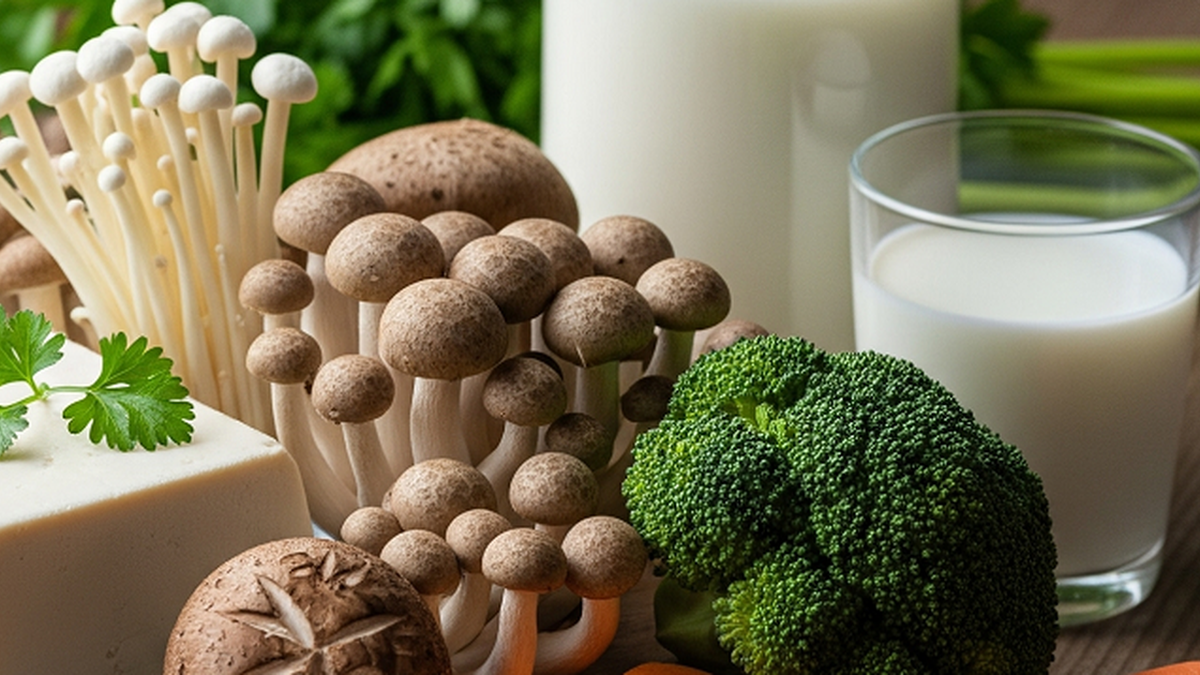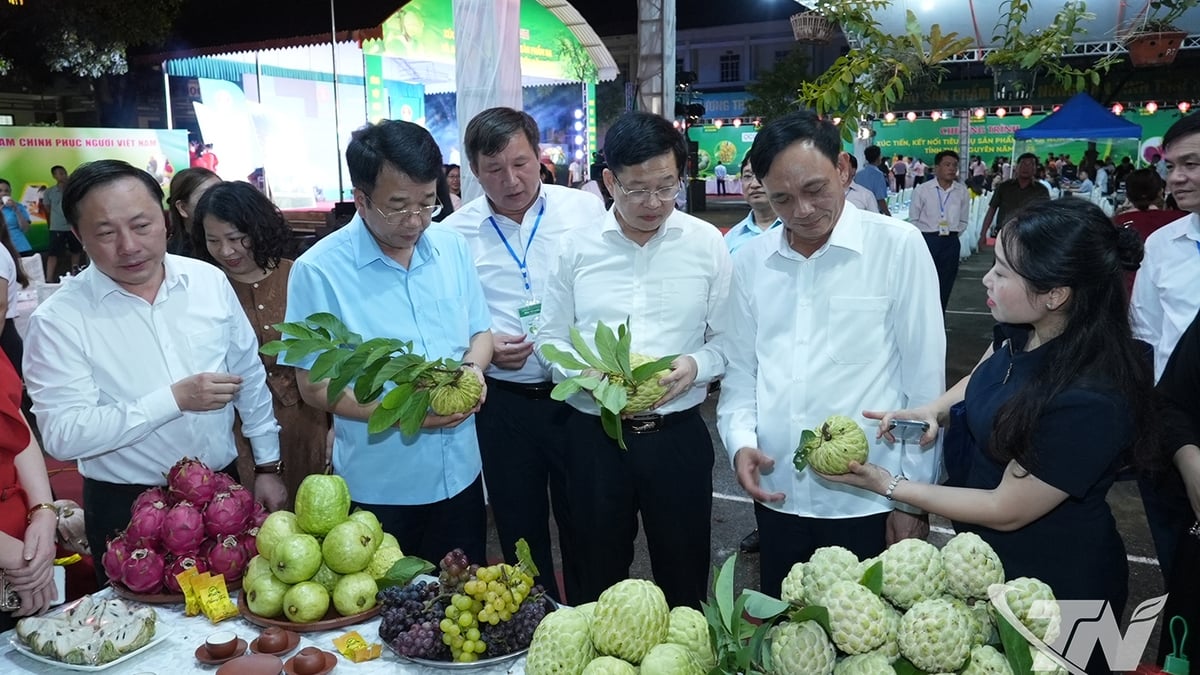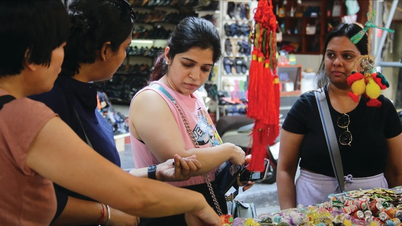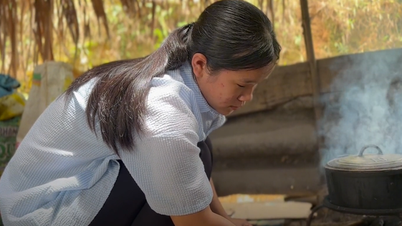Master, Doctor Vo Bich Tram, Department of Traditional Medicine - Rehabilitation, People's Hospital 115 shared that pangolin scales (Xuyen Son Giap) are classified as a medicine that promotes blood circulation, removes blood stasis, and detoxifies, and has a salty taste and cold properties. However, due to their high economic value, pangolin scales are often assigned many different uses, putting this species at risk of extinction.
"In fact, traditional medicine has many medicinal herbs that have similar effects to pangolin scales or rhino horn, which are both effective and safe for biodiversity," Dr. Tram shared.
Below are 10 types of medicinal plants - common medicines that can replace pangolin scales, have detoxifying and anti-inflammatory effects... selected based on traditional medical documents and modern scientific research.

Dandelion, fish mint, fig... are familiar medicinal herbs in traditional medicine with many valuable active ingredients.
Photo: AI
1. Dandelion
Doctor Tram said that dandelion contains active ingredients such as flavonoids, essential oils, saponins... which have the effects of clearing heat, detoxifying, reducing inflammation, dispersing clots, anti-oxidation, anti-inflammation, antibacterial, and inhibiting cancer cells.
The part used is the above ground (dry) part of the plant.
Dosage: 8-30 g/day, decocted to drink or crushed and applied externally.
Note: Do not use for people with yin deficiency or ruptured boils.
2. Honeysuckle
Honeysuckle contains essential oils, flavonoids, saponins, iridoids, chlorogenic acid..., which help clear heat, detoxify, disperse wind-heat, fight inflammation, fight bacteria, fight viruses and inhibit cancer cells.
Parts used include dried flowers and dried leaves.
Dosage: 12-16 g/day, can be boiled, steeped, soaked in alcohol or ground into powder to make pills.
Note: Do not use for people with diarrhea due to weak spleen and stomach, weak qi, or ruptured boils.
3. Oregano
Oregano contains essential oils, luteolin, ursolic acid... The medicinal herb has anti-inflammatory, antibacterial, antiviral and anticancer effects.
Parts used are branches, flower clusters and dried leaves.
Dosage: 10-16 g dry or 30 g fresh/day, decoct or soak.
Doctor Tram notes that you should not use kinh gioi when you have a weak exterior (hot with sweat), sweat a lot, or have a cold wind (cold wind infection, cold wind entering the body).
4. Purple basil
Purple basil contains essential oils, flavonoids, ursolic acid, chlorogenic acid. The herb has a spicy taste and warm properties, with antioxidant, hypoglycemic, antitumor, antibacterial, antifungal, analgesic, antispasmodic and immunoregulatory effects. The part used is the fresh or dried leafy branches. Dosage 6-12 g/day, decoction or infusion.
5. Mulberry
Mulberry contains vitamins, organic acids, antioxidants... This herb has the effect of enriching blood, moistening the intestines, fighting oxidation, lowering blood sugar, anti-tumor, protecting the liver and nerves.
The part used is the fruit.
Dosage: 9-15 g/day, decoct or soak in alcohol.

Mulberry has the effect of enriching blood, moistening the intestines, fighting oxidation, and lowering blood sugar.
PHOTO: AI
6. Fish mint
Fish mint contains essential oils, alkaloids, flavonoids... Medicinal herbs help clear heat, detoxify, reduce swelling, anti-inflammatory, diuretic, antiviral, antioxidant, hypoglycemic, anti-allergic and protect the liver.
The part used is the whole plant.
Dosage: 15-25 g dry or 35-50 g fresh/day, decoct quickly or squeeze juice to drink; externally, use crushed and applied or decocted to wash.
7. Luffa
Luffa contains triterpen saponin, polypeptide... The herb has the effect of promoting blood circulation, anti-inflammatory, antibacterial, pain relief, sedation, cough relief and phlegm removal. The parts used are the fruit or luffa fiber. Dosage 6-15 g/day, decoction or powder.
Be careful with people with weak spleen and stomach, diarrhea.
8. Fig
Figs contain bergenin, lupeol acetate, β-carotene... and minerals (Fe, Ca, Mg, K, Zn). Medicinal herbs help regenerate tissue, reduce swelling, lower blood fat, and strengthen bones, joints, and the cardiovascular system.
The part used is the fruit (processed).
Dosage: 6-15 g/day, decoction or powder.
9. Parasitic tang
Tang ki sinh (mistletoe that lives on mulberry trees) contains quercetin, avicularin, lectin... The herb has the effect of dispelling wind and dampness, nourishing the liver and kidneys, strengthening tendons and bones, sedating, regulating immunity, diuretic, promoting lactation, anti-oxidant, protecting the nerves, liver and kidneys.
The parts used are dry branches and leaves.
Dosage: 12-20 g/day, decoction.
10. Soapberry
Soapberry contains triterpene saponin, flavonoid... The medicinal herb has the effect of eliminating toxins, eliminating pus, anti-inflammatory, anti-allergic, antibacterial, antiviral, cleaning dandruff, softening hair and preventing breakage.
Parts used are fruit, thorns, seeds.
Dosage: 3-9 g/day, decoction; externally used with vinegar to apply or cover.
Source: https://thanhnien.vn/tim-dau-xa-day-la-10-loai-thao-duoc-giup-giai-doc-khang-viem-cuc-hieu-qua-185250811222522159.htm



























![[Photo] General Secretary attends the inauguration ceremony of the Ministry of Public Security Headquarters](https://vphoto.vietnam.vn/thumb/1200x675/vietnam/resource/IMAGE/2025/8/16/3ceec3a24ef945c18ae2b523563b749d)
![[Photo] National Assembly Chairman Tran Thanh Man attends the program "Returning to the source - Towards the future"](https://vphoto.vietnam.vn/thumb/1200x675/vietnam/resource/IMAGE/2025/8/16/d081d9c162ee4ed9919e723aa322a53a)


![[Photo] “Moving forward with Vietnam” on the most romantic road in Vietnam](https://vphoto.vietnam.vn/thumb/1200x675/vietnam/resource/IMAGE/2025/8/16/0ee500bc59fd4468863261ee26f47fe7)































































Comment (0)